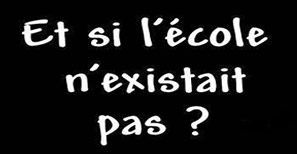Difference between revisions of "Language/French/Grammar/Conditional-Mood"
Jump to navigation
Jump to search
m (Quick edit) |
m (Quick edit) |
||
| Line 2: | Line 2: | ||
Bonjour French learners,😊 | Bonjour French learners,😊 | ||
How do we use the conditional tense in French? | How do we use the conditional tense in French? In this lesson, we will explore the fascinating world of the [[Language/French/Grammar/Conditional-Mood|conditional mood]] in French grammar. Once you've mastered this topic, you might also be interested in learning about [[Language/French/Grammar/Demonstrative-pronouns|demonstrative pronouns]], [[Language/French/Grammar/Possessive-determiners|possessive determiners]], and [[Language/French/Grammar/Comparative-and-Superlative-Adjectives|comparative and superlative adjectives]] in French. Let's dive in and improve your French language skills together! 🇫🇷 | ||
==When to use?== | ==When to use?== | ||
The conditional expresses, the hypothetical and the possible: it describes events that are not guaranteed to occur. | The conditional expresses, the hypothetical and the possible: it describes events that are not guaranteed to occur. | ||
| Line 24: | Line 24: | ||
[[Category:French/Beginner]] | [[Category:French/Beginner]] | ||
== | ==Other Lessons== | ||
* [[Language/French/Grammar/Differences-in-the-use-of-numbers-in-French-and-English-Ordinal-number-abbreviations|Differences in the use of numbers in French and English Ordinal number abbreviations]] | * [[Language/French/Grammar/Differences-in-the-use-of-numbers-in-French-and-English-Ordinal-number-abbreviations|Differences in the use of numbers in French and English Ordinal number abbreviations]] | ||
* [[Language/French/Grammar/Conjugation-group-3-—-verbs-with-infinitives-which-end-in-—re|Conjugation group 3 — verbs with infinitives which end in —re]] | * [[Language/French/Grammar/Conjugation-group-3-—-verbs-with-infinitives-which-end-in-—re|Conjugation group 3 — verbs with infinitives which end in —re]] | ||
| Line 34: | Line 34: | ||
* [[Language/French/Grammar/How-to-Use-Be|How to Use Be]] | * [[Language/French/Grammar/How-to-Use-Be|How to Use Be]] | ||
* [[Language/French/Grammar/Differences-in-the-use-of-numbers-in-French-and-English-Dates|Differences in the use of numbers in French and English Dates]] | * [[Language/French/Grammar/Differences-in-the-use-of-numbers-in-French-and-English-Dates|Differences in the use of numbers in French and English Dates]] | ||
<span links></span> | |||
Latest revision as of 20:02, 24 March 2023
Bonjour French learners,😊
How do we use the conditional tense in French? In this lesson, we will explore the fascinating world of the conditional mood in French grammar. Once you've mastered this topic, you might also be interested in learning about demonstrative pronouns, possessive determiners, and comparative and superlative adjectives in French. Let's dive in and improve your French language skills together! 🇫🇷
When to use?[edit | edit source]
The conditional expresses, the hypothetical and the possible: it describes events that are not guaranteed to occur.
Examples[edit | edit source]
- Il vous appellerait s'il savait que vous l'aimez = He would call you if he knew that you loved him
- Si vous nettoyiez votre chambre, votre colocataire serait plus gentil avec vous = If you cleaned your room, your roommate would be nicer to you.
- Il mangerait s'il avait faim = He would eat if he were hungry
- Si nous étudiions, nous serions plus intelligents = If we studied, (then) we would be smarter.
Videos[edit | edit source]
Other Lessons[edit | edit source]
- Differences in the use of numbers in French and English Ordinal number abbreviations
- Conjugation group 3 — verbs with infinitives which end in —re
- Hyphens in Cardinal Numbers
- Past participles used as adjectives with the verb "être"
- Plurals of nouns ending in s, x, z
- Problems with passive different direct objects
- Use of stressed pronouns for emphasis
- How to Use Be
- Differences in the use of numbers in French and English Dates
